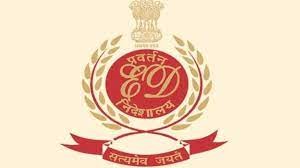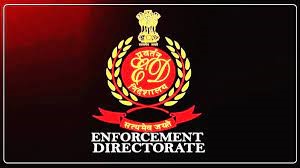Explore the intricate workings and far-reaching powers of the Enforcement Directorate, India’s foremost agency tasked with combatting economic crimes and ensuring financial integrity. Delve into its origins, legal framework, recent judicial clarifications, and future challenges as it navigates the complex terrain of financial enforcement and regulatory compliance.

In the realm of India’s legal and investigative landscape, few agencies wield as much influence and authority as the Enforcement Directorate (ED). Tasked with probing economic crimes and enforcing laws related to money laundering and foreign exchange violations, the ED has emerged as a formidable force in combating financial malfeasance. In this in-depth exploration, we delve into the origins, evolution, and overarching powers of the Enforcement Directorate, shedding light on its pivotal role in upholding the integrity of India’s financial ecosystem.
Origins and Evolution: Established in 1956 as an “Enforcement Unit” under the Ministry of Finance’s Department of Economic Affairs, the Enforcement Directorate initially focused on infractions of exchange control laws under the Foreign Exchange Regulation Act of 1947 (FERA ’47). Over the years, its mandate expanded to encompass investigations into money laundering, economic offenses, and violations of foreign exchange legislation. With a growing organizational footprint comprising 39 zones across the country, the ED has evolved into a multifaceted agency equipped to tackle complex financial crimes.
Legal Framework and Jurisdiction: At the heart of the Enforcement Directorate’s authority lies a robust legal framework comprising key enactments such as the Prevention of Money Laundering Act, 2002 (PMLA), the Foreign Exchange Management Act, 1999 (FEMA), the Fugitive Economic Offenders Act, 2018 (FEOA), and the Conservation of Foreign Exchange and Prevention of Smuggling Activities Act, 1974 (COFEPOSA). These statutes empower the ED to investigate, adjudicate, and impose penalties on individuals and entities found guilty of financial wrongdoing, thus bolstering its efficacy in combatting economic crimes.
Powers and Prerogatives: The Enforcement Directorate wields a formidable array of powers, including the authority to arrest, conduct searches, seize assets, and attach properties suspected to be involved in money laundering or foreign exchange violations. Upheld by recent judicial pronouncements affirming the legality of its actions, the ED’s sweeping powers underscore its significance as a bulwark against financial malpractice and illicit transactions.

Impact and Controversies: While the Enforcement Directorate plays a crucial role in safeguarding India’s financial integrity, its operations have not been immune to criticism and controversy. Allegations of selective targeting, political interference, and procedural irregularities have dogged the agency, raising questions about its autonomy and accountability. Additionally, concerns have been raised regarding the implications of stringent laws such as the PMLA on individual rights and due process.
Recent Judicial Clarifications: In a landmark ruling, the Supreme Court provided clarifications on various aspects of the Enforcement Directorate’s functioning, addressing issues such as the definition of money laundering, the right to receive an Enforcement Case Information Report (ECIR), and the legality of confessions made to the ED. These clarifications serve to delineate the boundaries of the ED’s powers while upholding procedural safeguards and constitutional principles.
Future Outlook and Challenges: As India’s financial landscape continues to evolve, the Enforcement Directorate faces a myriad of challenges, including adapting to emerging forms of financial crime, enhancing international cooperation, and balancing its enforcement priorities with safeguarding individual rights. Moreover, ensuring transparency, accountability, and adherence to due process will be critical in preserving public trust in the agency’s mandate and operations.

The Enforcement Directorate occupies a central role in India’s legal architecture, wielding significant powers to combat financial crimes and preserve the integrity of the nation’s economic fabric. By upholding the rule of law, promoting accountability, and fostering transparency, the ED can continue to serve as a bulwark against financial malfeasance, safeguarding India’s economic interests and societal well-being in the process.
